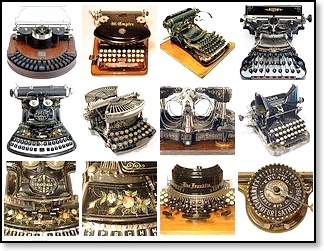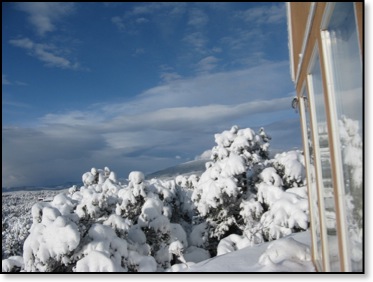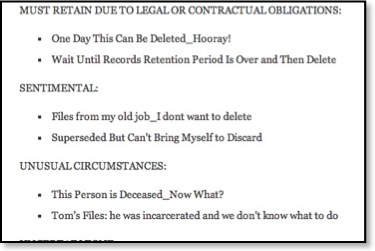Leah Guren on demographic differences in using Help content
03/27/10 08:04 Filed in: search
Another
great session from WritersUA. Leah Guren has been
conducting usability tests on populations using
software help systems to perform simple tasks. In
this study, she found that language, experience, and
age affect task performance.
Some of her conclusions:
Gender made no difference - women look for Help content, or ignore Help content, as much as men.
Experience can make a big difference. It takes 8 good successful sessions with help to make up for one bad experience where it didn't help. -- think indexes?
Age is a huge factor, and native tongue as well. These are both modified by experience, i.e., an older user who was very experienced with using other help systems were just fine, but older newbie users were not. Those working in a second language who again had more experience were just fine, but it was a barrier if the user was a newbie.
58% of users distrust Help - due to bad experiences.
Small onscreen text that appears in a bar above or below the window is not seen at all.
Side panels also disappear.
When readers look at a table of contents online that contains a ton of hierarchical structures, they don't use it. When asked why, they said that none of the headings seemed to help. Leah said that to a user, their question is first level important. We can assume that they want it up at the main heading level in a toc, or it is useless to them. So again, think indexes, we are the great levelers for people who think their search is important enough to be available on a first level basis.
I wish she had tested indexes, but oh well.
Links inside a paragraph lose users completely.
Vocabulary was a huge issue - again, there we can help teach users the domain language.
Some of her conclusions:
Gender made no difference - women look for Help content, or ignore Help content, as much as men.
Experience can make a big difference. It takes 8 good successful sessions with help to make up for one bad experience where it didn't help. -- think indexes?
Age is a huge factor, and native tongue as well. These are both modified by experience, i.e., an older user who was very experienced with using other help systems were just fine, but older newbie users were not. Those working in a second language who again had more experience were just fine, but it was a barrier if the user was a newbie.
58% of users distrust Help - due to bad experiences.
Small onscreen text that appears in a bar above or below the window is not seen at all.
Side panels also disappear.
When readers look at a table of contents online that contains a ton of hierarchical structures, they don't use it. When asked why, they said that none of the headings seemed to help. Leah said that to a user, their question is first level important. We can assume that they want it up at the main heading level in a toc, or it is useless to them. So again, think indexes, we are the great levelers for people who think their search is important enough to be available on a first level basis.
I wish she had tested indexes, but oh well.
Links inside a paragraph lose users completely.
Vocabulary was a huge issue - again, there we can help teach users the domain language.
Bob Boiko on the metatorial process
03/26/10 08:02 Filed in: tagging
Another
great speaker at the WritersUA conference was Bob
Boiko. If you have not read his great Content
Management Bible, google it and read it online. Yes,
all 800 some pages. He loves indexing and tagging
data, so knowing him and quoting him when you are
talking to clients can establish a common vocabulary.
His talk this year was about the importance of the metatorial process. It is like the editorial process, but for your content's metadata. His strategy when approaching large bodies of data that need a schema is to ask these questions:
What underlying structures can be behind the surface structures we need?
How will we tag items so that they are part of the structures?
How much time and resource do we expect to get the backlog tagged and to tag on an ongoing basis?
How will we review, evaluate, and renew our approach?
He says that professionally tagging content is more important than social network tagging, because the content has to participate in another structure outside of the social one, and you must have consistency at the base of the information.
"Information strategy tells you what you had better be doing. Information structure tells you how you had better be doing it."
He feels that content writers and structurers (and us, as part of that) need to take control back from the IT people and drive the metatorial process.
Boiko is always worth reading and hearing if he comes near your town.
He has a course up at winhost.ischool.washington.edu/courseBook - go take a look!
His talk this year was about the importance of the metatorial process. It is like the editorial process, but for your content's metadata. His strategy when approaching large bodies of data that need a schema is to ask these questions:
What underlying structures can be behind the surface structures we need?
How will we tag items so that they are part of the structures?
How much time and resource do we expect to get the backlog tagged and to tag on an ongoing basis?
How will we review, evaluate, and renew our approach?
He says that professionally tagging content is more important than social network tagging, because the content has to participate in another structure outside of the social one, and you must have consistency at the base of the information.
"Information strategy tells you what you had better be doing. Information structure tells you how you had better be doing it."
He feels that content writers and structurers (and us, as part of that) need to take control back from the IT people and drive the metatorial process.
Boiko is always worth reading and hearing if he comes near your town.
He has a course up at winhost.ischool.washington.edu/courseBook - go take a look!
Go play with this music maker
03/22/10 07:54 Filed in: miscellany
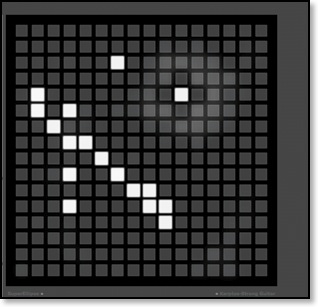
Each dot you add makes a new tonal pattern, and the tool repeats it. Very fun to play with! There is also a guitar simulator. Play here!
Don't count sheep, do your ABC's
03/21/10 07:52 Filed in: miscellany
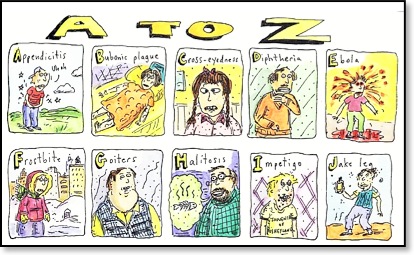
When Roz Chast can't sleep, she doesn't count sheep. She picks a subject and tries to find the ABC's for it. She takes on bodily woes in this cartoon. Extra points if you can define Jake Leg off the top of your head without using any search tools!
Digital decay
03/20/10 07:50 Filed in: books | publishing
The
New York Times
has an
intriguing piece on how hard it is to archive
digital materials: Electronically
produced drafts, correspondence and editorial
comments, sweated over by contemporary poets,
novelists and nonfiction authors, are ultimately
just a series of digits — 0’s and 1’s — written on
floppy disks, CDs and hard drives, all of which
degrade much faster than old-fashioned acid-free
paper. Even if those storage media do survive, the
relentless march of technology can mean that the
older equipment and software that can make sense
of all those 0’s and 1’s simply don’t exist
anymore.
Cool! A whole site of antique typewriters
03/17/10 07:47 Filed in: miscellany
Felix gets to be in the index
03/14/10 17:01 Filed in: indexing
From
Peg Boyle Single's
story of
her thesis and later book writing career, a
tribute to her dog Felix:
He had taken to snoring recently and the sound kept me company through final readings of my book, checking style sheets, and triple-checking Chicago Style formatting. I even took on the torturous task of self-indexing so that I could make sure that references to my four-legged writing partner made it into my book, something most
professional indexers would have rightly skipped.
He had taken to snoring recently and the sound kept me company through final readings of my book, checking style sheets, and triple-checking Chicago Style formatting. I even took on the torturous task of self-indexing so that I could make sure that references to my four-legged writing partner made it into my book, something most
professional indexers would have rightly skipped.
Story on cut paper art
03/13/10 17:00 Filed in: miscellany
You have to
get through a toyota commercial first, but wait
through it because the artwork is quite
spectacular.
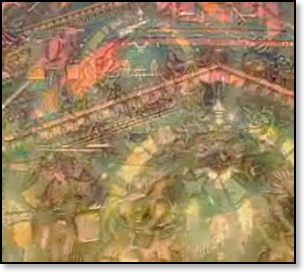
Where are my scissors?

Where are my scissors?
Best file folder names yet
03/12/10 16:58 Filed in: miscellany
Clay Shirky's "Ontology is overrated" - good read
03/11/10 16:56 Filed in: taxonomies
Here's a
taste, and you can find the whole thing
here:
One reason Google was adopted so quickly when it came along is that Google understood there is no shelf, and that there is no file system. Google can decide what goes with what after hearing from the user, rather than trying to predict in advance what it is you need to know.
Let's say I need every Web page with the word "obstreperous" and "Minnesota" in it. You can't ask a cataloguer in advance to say "Well, that's going to be a useful category, we should encode that in advance." Instead, what the cataloguer is going to say is, "Obstreperous plus Minnesota! Forget it, we're not going to optimize for one-offs like that." Google, on the other hand, says, "Who cares? We're not going to tell the user what to do, because the link structure is more complex than we can read, except in response to a user query."
Browse versus search is a radical increase in the trust we put in link infrastructure, and in the degree of power derived from that link structure. Browse says the people making the ontology, the people doing the categorization, have the responsibility to organize the world in advance. Given this requirement, the views of the catalogers necessarily override the user's needs and the user's view of the world. If you want something that hasn't been categorized in the way you think about it, you're out of luck.
The search paradigm says the reverse. It says nobody gets to tell you in advance what it is you need. Search says that, at the moment that you are looking for it, we will do our best to service it based on this link structure, because we believe we can build a world where we don't need the hierarchy to coexist with the link structure.
One reason Google was adopted so quickly when it came along is that Google understood there is no shelf, and that there is no file system. Google can decide what goes with what after hearing from the user, rather than trying to predict in advance what it is you need to know.
Let's say I need every Web page with the word "obstreperous" and "Minnesota" in it. You can't ask a cataloguer in advance to say "Well, that's going to be a useful category, we should encode that in advance." Instead, what the cataloguer is going to say is, "Obstreperous plus Minnesota! Forget it, we're not going to optimize for one-offs like that." Google, on the other hand, says, "Who cares? We're not going to tell the user what to do, because the link structure is more complex than we can read, except in response to a user query."
Browse versus search is a radical increase in the trust we put in link infrastructure, and in the degree of power derived from that link structure. Browse says the people making the ontology, the people doing the categorization, have the responsibility to organize the world in advance. Given this requirement, the views of the catalogers necessarily override the user's needs and the user's view of the world. If you want something that hasn't been categorized in the way you think about it, you're out of luck.
The search paradigm says the reverse. It says nobody gets to tell you in advance what it is you need. Search says that, at the moment that you are looking for it, we will do our best to service it based on this link structure, because we believe we can build a world where we don't need the hierarchy to coexist with the link structure.
Daily routines
03/04/10 16:46 Filed in: miscellany
The Daily Routines
site is a
wonderful time waster. It has pulled together
writers, artists, and interesting people from all
walks of life and notes their daily routines for
working and playing. Here's an excerpt from
Benjamin Franklin:
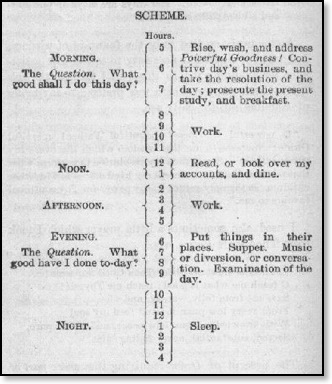

Now you can dress like the Norwegian curling team!
03/02/10 16:44 Filed in: miscellany
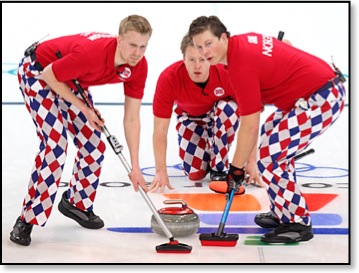
I have decided I like curling - it seems like the ice version of lawn bowling, which is something I do whenever I visit Seattle. I have friends there who go every Sunday, have a potluck breakfast, and then we all put on large hats and summery white clothes, and have a great time messing up every ball we throw.
Curling seems like the perfect winter alternative, but I have nothing in my wardrobe to match what the Norwegians wore. Now you can buy the same pants! NPR has the links!
A new alternative energy source for the home?
03/01/10 16:42 Filed in: miscellany
I'm up for
this, if it is cost effective and nondestructive:
Bloom Energy is developing a power box for the home too, a development that could fundamentally change the way home users buy energy, if (again) the Bloom box is the real deal.
More here! I hope it is not pie in the sky...... sigh.
Bloom Energy is developing a power box for the home too, a development that could fundamentally change the way home users buy energy, if (again) the Bloom box is the real deal.
More here! I hope it is not pie in the sky...... sigh.
